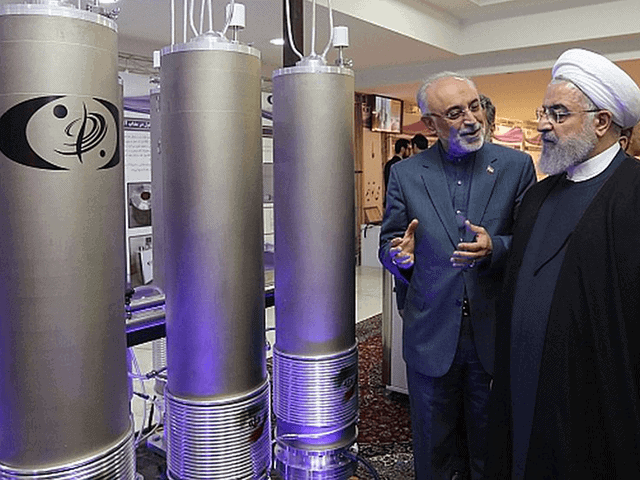Iran’s Uranium Enrichment Program ‘Ahead of Schedule,’ Official Says

An Iranian official announced Thursday that the country is “ahead of schedule” in enriching uranium to a purity level of 20%, and is installing additional centrifuges in nuclear testing sites.
“Regarding the 120 kg of 20-percent [uranium] enrichment per year, [Iranian] experts have been able to enrich 17 kg in less than a month,” Parliament Speaker Mohammad-Baqer Qalibaf said on Iranian state-owned Press TV. “That means we are ahead of the schedule,” Qalibaf added.
Qalibaf, speaking at the Fordow enrichment facility, also said the facility was installing “a number of” IR-2m centrifuges. A spokesman for the Atomic Energy Organization of Iran, confirmed the amount of enriched uranium to Press TV. The Iranian energy organization said it planned to install 1,000 IR-2m centrifuges within a three-month period.
Iran says the nuclear program is for energy purposes, but world leaders, including the six nations that joined the 2015 deal to limit Iran’s nuclear weapons capacity, say enriching uranium might lead to Iran’s ability to quickly create a nuclear weapon.
President Donald Trump unilaterally withdrew from the deal in 2018, and Iran has been violating the agreement since then.
Tehran’s decision to ramp up its nuclear testing comes as new U.S. Secretary of State Antony Blinken said Wednesday that the United States would be interested in rejoining the Joint Comprehensive Plan of Action to help limit Iran’s nuclear weapon capabilities in exchange for a lifting of economic sanctions.
But the United States will only join if Iran came back into “full compliance” with the plan, including limiting Iran’s uranium enrichment to less than 4% purity.
“Iran is out of compliance on a number of fronts,” Blinken said. “And it would take some time, should it make the decision to do so, for it to come back into compliance in time for us then to assess whether it was meeting its obligations. … We’re not there yet to say the least,” he said.
Iranian Foreign Minister Mohammad Javad Zarif responded to Blinken, tweeting Wednesday that the U.S. secretary of state needed a “reality check.” Zarif called the Trump administration’s sanctions that “blocked food/medicine to Iranians,” and other actions a “maximum failure.”
“Now, who should take 1st step?” Zarif asked.
Iranian politicians have said that the United States has a “small window” of time to rejoin the 2015 accord and Israeli military officials said Wednesday it would be a “wrong” for the United States to drop sanctions and return to negotiations with Iran.
Photo: Iranian Presidency Office
Link: Iran's Uranium Enrichment Program 'Ahead of Schedule,' Official Says (breitbart.com)











